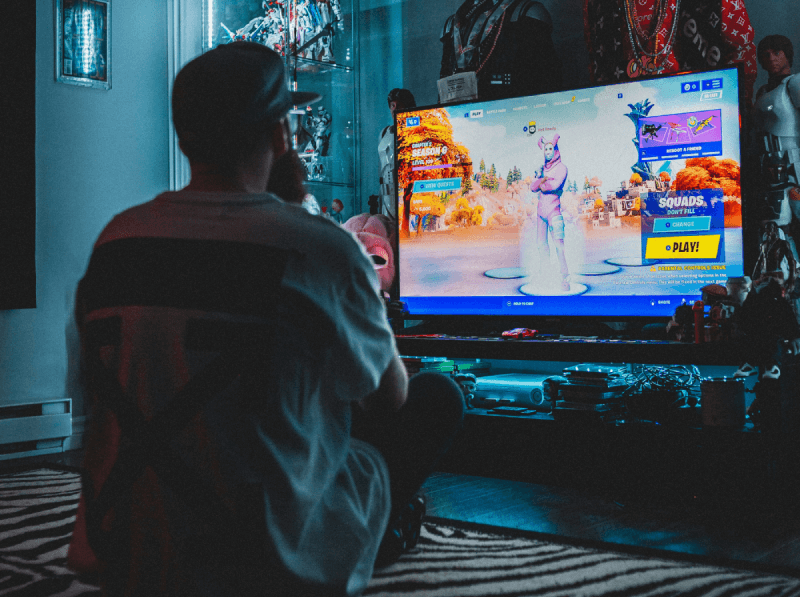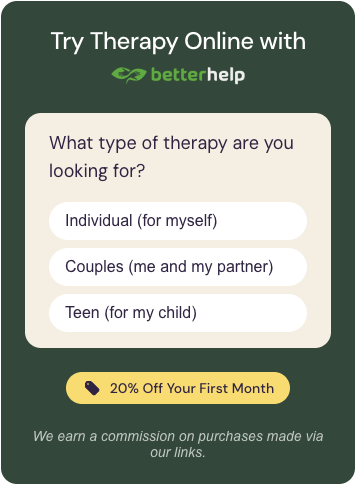This guide covers all aspects of problematic gaming behavior—from understanding the condition and recognizing symptoms to accessing treatment options and preventing its onset. Developed through expert consultations, in-depth reviews of peer-reviewed studies, and interviews with addiction specialists, this resource integrates factual research with authentic case studies to truly inform and assist individuals and their families.
Introduction & Purpose of the Guide
Video game addiction affects millions, with impact on mental, physical, and social health. This guide was created after extensive investigation, including discussions with professionals in psychology and addiction treatment, and by reviewing articles published in esteemed academic journals. It offers concrete advice, evidence-based treatment strategies, and actionable prevention techniques. While addressing clear indicators of gaming addiction, the content also explores emerging trends that may redefine the condition in coming years.
- Target Audience: Individuals experiencing compulsive gaming habits, family members seeking support, and educators aiming to understand the warning signs of addiction.
- Key Benefits: Immediate self-assessment tools, detailed treatment comparisons, prevention strategies tailored to teenagers, adults, and guardians, and direct links to reputable resources like the World Health Organization and American Psychiatric Association.
Problem Statement
Excessive gaming can disrupt daily schedules, compromise academic or work performance, and harm interpersonal relationships. When unresolved, it may lead to mood disturbances, cognitive impairments, and even a deteriorated sense of self-worth. Families and individuals often confront increased stress, anxiety, and isolation without clear guidance or professional support.
- Impact Areas:
- Mental health: Elevated risk of depression and anxiety.
- Physical health: Irregular sleep patterns and sedentary habits.
- Social well-being: Withdrawal from friends and community engagement.
Research indicates that an estimated 6.04% of the population experiences these adverse effects, underscoring the necessity for prompt intervention and ongoing support.
Guide Overview
In this resource, you will encounter:
- An explanation of the phenomenon and its diagnostic criteria.
- Detailed discussion on how dopamine cycles influence gaming behavior.
- Comprehensive comparisons between treatment modalities such as Cognitive Behavioral Therapy (CBT) and alternative counseling methods.
- Prevention guidance tailored to different demographics.
In-Depth Analysis & Development Process
The content in this guide is the product of methodical research:
- Expert Interviews: Conversations with addiction specialists provided current clinical insights on behavioral therapy and neurobiology.
- Scientific Sources: Peer-reviewed studies from renowned journals helped outline the correlation between gaming and changes in brain chemistry.
- Case Studies & Anecdotes: Real-life experiences, including “Sasha’s Story,” illustrate the progression from casual gaming to a compulsive cycle, offering practical lessons for readers.
Each section was reviewed against established criteria from medical and psychological authorities, ensuring that the provided information reflects the most current research and expert consensus.
What is Video Game Addiction?
Video game addiction, also known as gaming disorder or internet gaming disorder, involves the excessive use of gaming that significantly disrupts daily responsibilities. This condition affects behavior and mood, often creating hardship in educational, occupational, and personal settings.
Neuroscience Behind Gaming Disorder
Contemporary studies in neuroscience reveal that rapid dopamine release during gameplay establishes a repetitive reward-seeking loop. For instance, research conducted by neuroscientists has shown:
- A measurable increase in dopamine levels comparable to patterns observed in other behavioral challenges.
- An association between prolonged gaming and impairments in regulatory brain functions.
The understanding here is supported by visuals such as infographics that compare ordinary gameplay with dysfunctional levels. A highlighted statement from an addiction expert emphasizes:
“Balancing entertainment with mindful play is essential in stopping early signs of addiction.”
Recognizing the Signs
Symptoms Checklist
Identifying problematic gaming behavior early can prevent deeper issues. Look for these indicators:
- Reduced interest in non-gaming hobbies
- Overlooked responsibilities at home or work
- Noticeable mood changes when not playing
- Altered sleep patterns
- Decline in personal care
Self-Assessment
Participate in interactive quizzes designed to evaluate gaming habits. These questions help determine if particular behaviors align with recognized diagnostic standards.
Case Study: Sasha’s Story
Sasha experienced a notable decline in academic performance and social interaction. Initially an avid gamer, Sasha eventually isolated from friends and family. Confronting these issues, Sasha discovered that excessive gameplay was masking underlying stress and anxiety. This case reinforces the importance of self-reflection and getting professional advice when early symptoms are present.
“Understanding my triggers and restructuring my daily routine helped me regain balance,” Sasha reflected.
Causes & Effects
Factors Contributing to Gaming Addiction
Several elements may drive individuals toward excessive gaming:
- Neurochemical Triggers: Reward loops, including achievements and virtual rewards, quickly become reinforcing.
- Emotional Escape: Gaming is sometimes used to cope with life stressors or emotional discomfort.
- Social Dynamics: Online communities offer support but can also normalize excessive gaming.
- Co-occurring Conditions: Psychological challenges such as anxiety or attention-related issues often accompany problematic gaming.
Consequences of Unchecked Gaming Behavior
Excessive gaming may lead to widespread challenges:
- Mental Health Issues: Higher instances of anxiety, depression, and difficulty concentrating.
- Physical Harm: Sleep disruption and a sedentary routine contribute to long-term health risks.
- Interpersonal Strain: Reduced face-to-face interaction and deterioration of social networks.
- Economic Concerns: Excessive spending on game-related in-app purchases may result in financial burdens.
Recent research published in peer-reviewed journals has actively examined these consequences. Reputable guidelines from organizations like the American Psychiatric Association serve as a benchmark for diagnosing internet gaming disorder.
Assessment & Diagnosis
Online Quiz: Evaluate Your Gaming Behavior
A concise quiz featuring 10-15 focused questions assesses the impact of your gaming habits. The questions are structured to gauge:
- Time investment
- Social and familial impact
- Control over gaming behavior
Interpreting Your Score
Scores are aligned with the latest criteria from recognized mental health frameworks. A higher score may signal that a professional consultation is warranted. Additional links connect you to diagnostic centers specializing in gaming disorder evaluation.
Treatment & Recovery Strategies
Effective Treatment Options
Various approaches help manage gaming addiction:
- Self-Help Techniques:
- Establish daily routines that limit screen time.
- Engage in mindfulness exercises and digital detox schedules.
- Psychotherapy:
- Cognitive Behavioral Therapy (CBT) is often recommended, given its structured approach to modifying behavior.
- Family counseling facilitates communication and collective strategy development.
- Professional Intervention:
- Specialists in addiction provide tailored recovery plans.
- Support groups offer shared experiences and peer-driven encouragement.
Treatment Comparison: CBT vs. Alternative Methods
- CBT: Focuses on identifying negative thought patterns and behavior restructuring.
- Alternative Therapies: Include group therapy and holistic methods that integrate lifestyle changes, often complementing CBT.
Interactive tabs on this page allow you to explore detailed outlines for each treatment approach along with readers’ testimonials.
Expert Insights
An “Expert Insights” box presents direct commentary from a recognized addiction specialist, Dr. M. Thompson (PhD, Behavioral Psychology). Dr. Thompson notes:
“Analyzing individual triggers and contextual factors is key in planning a successful recovery path. Structured therapies, combined with community support, often yield the best outcomes.”
For further details, consult the linked professional profile and published studies.
Prevention & Education
Practical Guidance for Different Groups
Prevention starts with informed action:
- For Individuals: Create balanced schedules that integrate diverse hobbies outside gaming.
- For Parents: Monitor gameplay, set consistent screen time regulations, and encourage social activities.
- For Educators: Implement digital literacy programs that present both benefits and risks of gaming.
Actionable Examples
- Adults: Use calendars to block specific gaming hours and allocate time for alternative leisure activities.
- Teenagers: Establish family agreements on gaming, coupled with academic support structures.
- Parents: Employ parental control tools and open discussions about online behavior.
Downloadable guides and posters are offered to support these strategies. These materials draw upon data from regulatory bodies and professional organizations, ensuring that the recommendations align with current guidelines.
Community & Support Network
Engage with Others
Building a support network can make a significant difference:
- Online Forums: Join moderated discussion boards where personal experiences and recovery tips are exchanged.
- Support Groups: Participate in local or virtual meetings dedicated to gaming disorder recovery.
- Social Media: Use sharing buttons to disseminate awareness and join advocacy efforts.
Regulatory and Advocacy Efforts
Understanding current policies and contributing to policy discussions are essential. Links to advocacy groups provide pathways for those wishing to promote responsible gaming practices at local and national levels.
“Community engagement not only offers support but also empowers policy revisers to consider the implications of gaming behavior on public health.”
About the Author
An experienced writer and researcher in behavioral psychology, the author has spent several years collaborating with clinical experts and studying emerging trends in addiction treatment. With credentials in both academic research and practical counseling, the author is committed to presenting information that is both evidence-based and accessible.
- Qualifications: Advanced degree in Psychology; numerous contributions to scholarly journals.
- Collaborations: Regular consults with addiction specialists and neuroscientists.
- Update Note: Content was last reviewed in April 2023 to incorporate the latest research findings.
For further background, please visit the extended author profile on our website.
Final Takeaways & Next Steps
- Summary Checklist:
- Recognize early warning signs through self-assessment tools.
- Understand how neurological mechanisms and environmental factors intertwine in gaming disorder.
- Review treatment options from self-help to professional intervention while comparing methods like CBT with alternative techniques.
- Access prevention tips tailored for individuals, teenagers, and parents.
- Utilize community resources and join support networks to maintain balanced gaming behavior.
- Action Plan:
- Complete the online self-assessment quiz to gauge your current behavior.
- Explore the detailed treatment options and decide if a consultation with a specialist is advisable.
- Implement prevention strategies specific to your demographic and encourage open discussions within your community.
- Provide feedback through our follow-up survey to help refine future updates to this guide.
Taking these steps will equip you with the knowledge to address gaming patterns, fostering improved personal and family well-being.
For immediate support, click on the provided CTAs such as “Take our Free Self-Assessment” or “Speak to a Specialist.” These tools are accessible throughout the guide to ensure that assistance is just a few clicks away.


